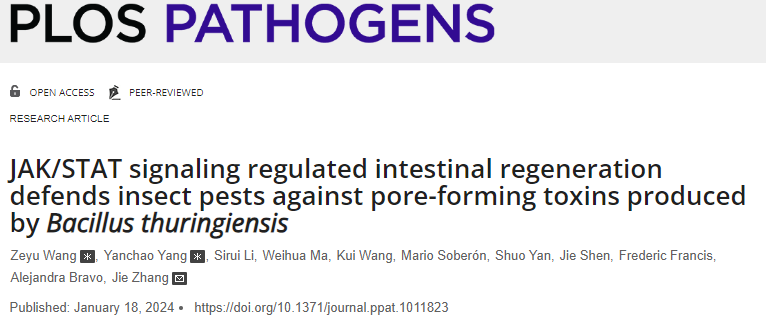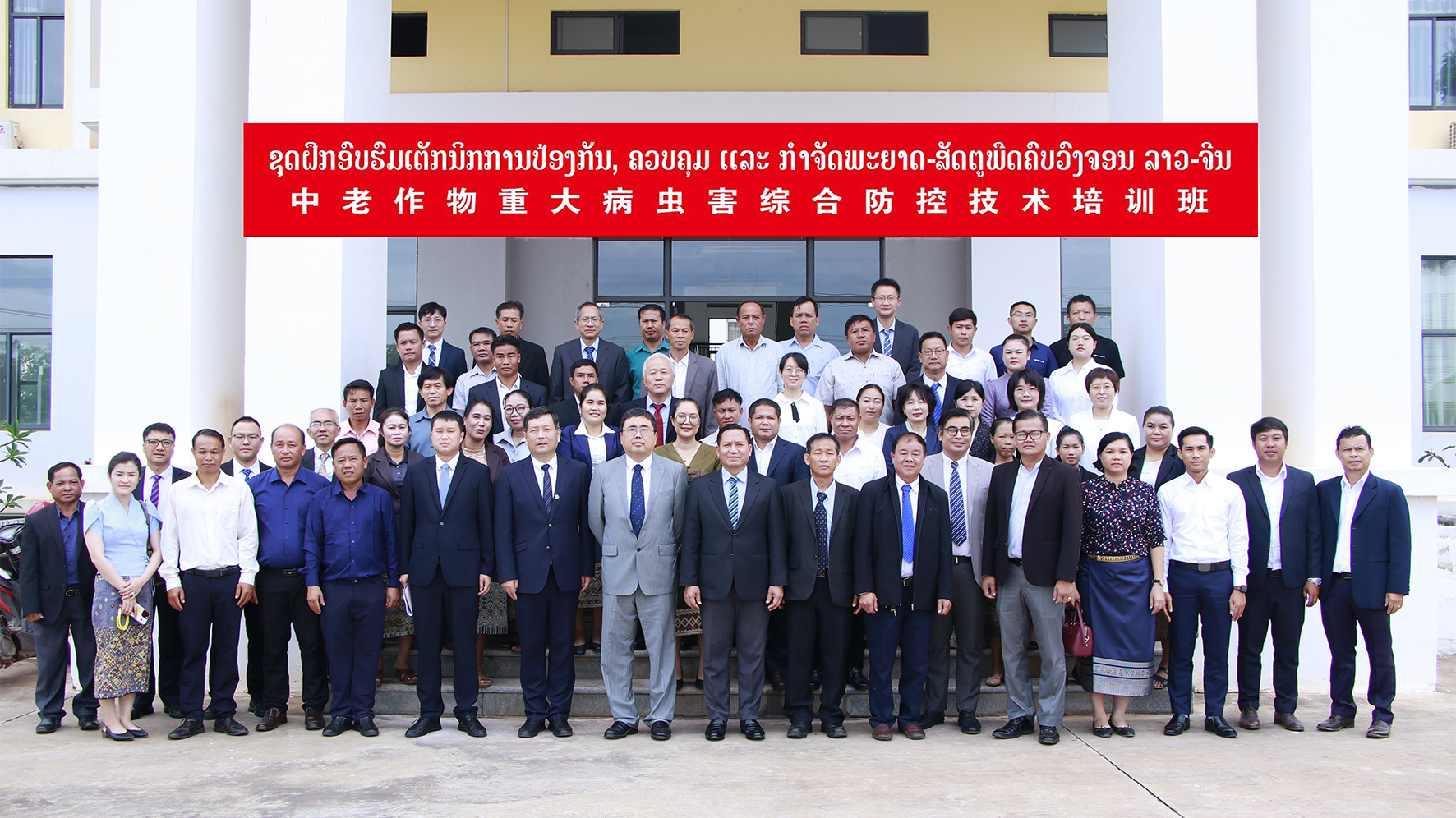Researchers from IPPCAAS revealed the molecular mechanism of insect pests defending to Bt insecticidal proteins
Recently, the innovation team of research and utilization of anti-insect functional genes from Institute of Plant Protection (IPPCAAS), Chinese Academy of Agricultural Sciences (CAAS) published a research article in《Plos Pathogens》entitled “JAK/STAT signaling regulated intestinal regeneration defends insect pests against pore-forming toxins produced by Bacillus thuringiensis”. This paper reveals the molecular mechanism of defense against Bacillus thuringiensis (Bt) in the midgut of insect pests.

Bacillus thuringiensis (Bt) is a worldwide used biopesticide whose efficacy and precise application methods limits its use to replace synthetic pesticides in agricultural settings. Recently they analyzed the intestinal defense mechanisms of two lepidopteran insect pests after intoxication with sublethal dose of Bt insecticidal proteins to find out potential functional genes. They show that larval intestinal epithelium was initially damaged by the Bt proteins and that larval survival was observed after intestinal epithelium regeneration. Further analyses showed that the intestinal regeneration caused by Cry9A protein is regulated through c-Jun NH (2) terminal kinase (JNK) and Janus tyrosine kinase/signal transducer and activator of transcription (JAK/STAT) signaling pathways. JAK/STAT signaling regulates intestinal regeneration through proliferation and differentiation of intestinal stem cells to defend three different Bt proteins including Cry9A, Cry1F or Vip3A in both insect pests, Chilo suppressalis and Spodoptera frugiperda. Consequently, a nano-biopesticide was designed to improve pesticidal efficacy based on the combination of Stat double stranded RNA (dsRNA)-nanoparticles and Bt strain. This formulation controlled insect pests with better effect suggesting its potential use to reduce the use of synthetic pesticides in agricultural settings for pest control.
AP. Wang Zeyu from IPPCAAS, and Yang Yanchao, a doctoral student jointly trained by the CAAS and the University of Liege, Belgium, are the co-first authors of this study, and Prod. Zhang Jie from IPPCAAS, is the corresponding author of this paper. Prof. Ma Weihua from Huazhong Agricultural University, Prof. Shen Jie and Prof. Yan Shuo from China Agricultural University provided strong support in this research. The research was funded by the National Natural Science Foundation of China.

Link:Wang Z, Yang Y, Li S, Ma W, Wang K, Soberon M, et al. (2024) JAK/STAT signaling regulated intestinal regeneration defends insect pests against pore-forming toxins produced by Bacillus thuringiensis. PLoS Pathog 20(1): e1011823. https://doi.org/10.1371/journal.
-
 China-Laos Training Workshop on Integrated Management of Destructive Crop Pests and Diseases Successfully held in Laos
China-Laos Training Workshop on Integrated Management of Destructive Crop Pests and Diseases Successfully held in Laos -
 New Plant Protection: New challenge and new opportunity for plant protection
New Plant Protection: New challenge and new opportunity for plant protection -
 International and SELAMAT Conference on Pesticide Residue and Mycotoxin Contamination Held in Beijing
International and SELAMAT Conference on Pesticide Residue and Mycotoxin Contamination Held in Beijing -
 CAAS President Meets Chairman of ASEAN FAW Taskforce
CAAS President Meets Chairman of ASEAN FAW Taskforce
